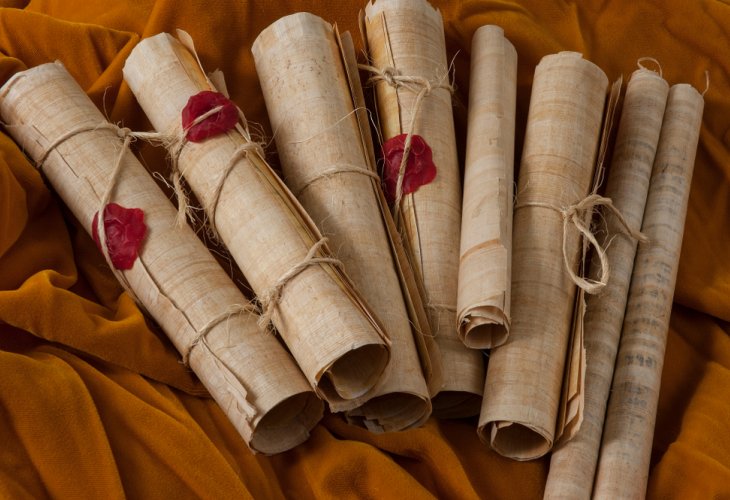Unraveling the Mystery of the Dead Sea Scrolls
Thousands of scrolls found in the Judean Desert, known as the "Dead Sea Scrolls," contain a wealth of material, including Torah books and other significant texts. Here’s the story you might not have heard.
 (Photo: Shutterstock)
(Photo: Shutterstock)Around 75 years ago, Muhammad a-Dib was chasing after the most rebellious goat in his herd. He had been herding in the Judean Desert for years. Due to a conflict with his wife's tribe near Hebron, his own tribe had moved east, settling in a less fertile part of the desert to maintain peace.
The trouble started with this obstinate goat, which always wandered as far away as possible in search of grass. He could never understand its logic and never found it easily either...
But this time, the goat crossed all boundaries, literally. He circled the entire valley, peering into the wadi with no sign of it. He almost gave up, but the thought of his tribe's elder’s potential reaction and the punishment that might follow gave him courage to climb down the Hever Stream, if only for a hundred meters. Perhaps it wandered into a cave to lick some moss, a known goat hobby.
To save time—perhaps out of fear of entering a cave—Muhammad a-Dib threw stones into the many caves along the hillside, hoping to startle the goat. Unfortunately, no bleating was heard, but his keen desert ears caught the sound of pottery shattering.
"A treasure of coins!" exclaimed Muhammad joyously. "The tribe elder will forget about the rebellious goat once I bring him a fortune that can buy a thousand goats." He climbed the cliffside with the agility of a mountain goat, or perhaps a monkey, and leapt into the cave. To his disappointment, instead of coins, he found fragments of parchment. Illiterate, a-Dib bundled the parchments with him, thinking they’d make good tinder for a fire to warm his hands at sunset. The tribe elder thought differently, retrieving some of the ancient pages. For safety, he cut them into pieces and tried selling them among acquaintances.
Ibrahim Igra, a seasoned antiquities dealer from Bethlehem, scoffed at the elder’s offering: "Get away from here, you thief. Those are Torah scroll fragments. You stole a book from the Jews and now want to sell, ruining my reputation. Soon the British will imprison me. Leave!"
Yet, the Bedouin trader persevered, selling fragments east of the Jordan until a Syrian priest named George became interested and traced their origin. The rumor reached Israeli scholar Eliezer Lipa Sukenik, leading him to purchase some of them. From then on, expeditions sought out these scrolls in the Judean Desert caves.
In the following years, thousands of scrolls, now known as the "Dead Sea Scrolls," were discovered in the Judean Desert. Among them were a wealth of materials like Torah and prophetic texts, vast literature, sectarian writings associated with groups like the Sadducees, and more obscure sects lost to history. These scrolls were from the Second Temple period.
Among the texts, there were also oral laws students would learn by heart. One such example is: "If you find fledglings behind a fence," asking about the status of someone finding birds that seem to have been placed behind a low wall.
For those familiar with the Mishnah, Tractate Bava Metzia will recall this law discussed in the chapter on lost items, showcasing how this oral law, passed down in Jewish tradition for centuries, was later documented by Rabbi Yehuda HaNasi in the Mishnah—already recorded here by an ancient scribe centuries before Rabbi Yehuda's time.

